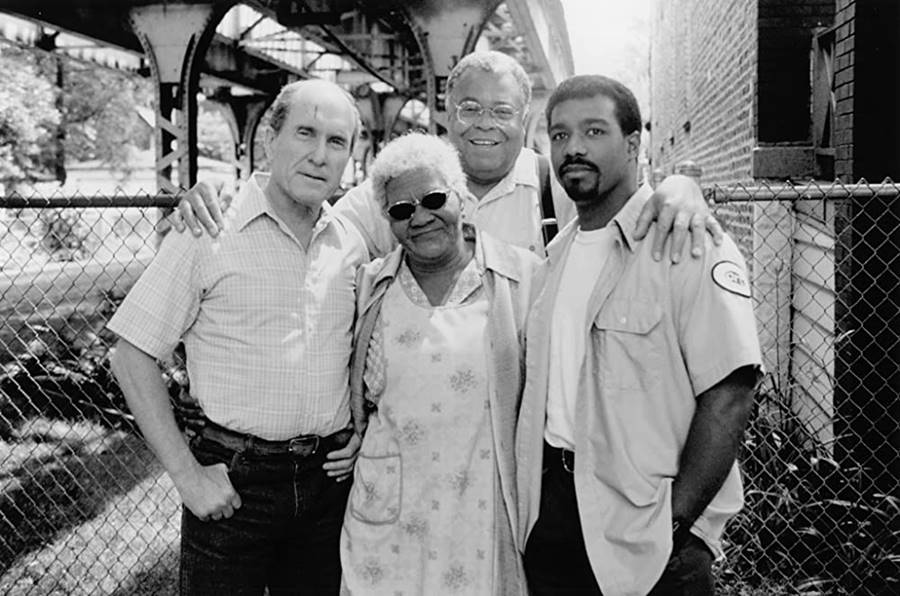
By Jae-Ha Kim
Chicago Sun-Times
December 7, 2001
Five years ago, Irma P. Hall made a name for herself playing a blind woman named Aunt T in “A Family Thing.” She’s playing another character named Aunt T, only this time it’s a cartoon voice on “A Rugrats Kwanzaa,” which premieres at 7:30 p.m. Tuesday on Nickelodeon. The 66-year-old South Side resident, who is best known for her touching role as Big Mama in “Soul Food,” doesn’t consider herself an actress, but rather a former teacher who happens to act.
Q. How did you get your start in acting?
A. I was doing what you’re doing. [In 1972] I was working for a newspaper, the Dallas Express, which doesn’t exist anymore. It was the oldest black paper in Dallas. I was interviewing a director and he ended up hiring me as a publicist for his company. Then he heard me reading some poetry I had written and he asked me to read for a part.
Q. Irma, are you saying you can make me a star?
A. [Laughs.] I wish I could, dear, but I don’t have that kind of power. I do have a production company called Joeisam Production that I started, but it doesn’t produce anything yet! I’m learning as I go. I want to produce educational material. I have a granddaughter and I want to set an example for her that you don’t have to be a millionaire to start something. Also, I taught high school for 27 years. I loved teaching kids.
Q. You’ve worked opposite Denzel Washington, Oprah Winfrey and Jason Robards. What made you choose a Rugrat for your latest co-star?
A. I’ve always wanted to voice a cartoon. Years ago, I used to do voices for a lady who had puppets like the Muppets. It was so much fun. I never got the chance to do a cartoon before this, so when my agent told me the Rugrats were asking for me, I was thrilled. Ironically, I play a character named Aunt T, which is what I played in “A Family Thing” as well. I’m not sure if they knew that when they named me that for this cartoon. This episode was especially relevant ’cause it’s about Kwanzaa, and we’ve celebrated that in our family since the 1960s. I’ve always been politically active.
Q. You’ve played some memor-able older women. Do you feel you missed out on playing the ingenue?
A. I know this sounds strange, but I always wanted to play octogenarians, even when I was 30. The directors would always tell me I was too young! The first time I played an older woman, my own mother didn’t recognize me.
Q. What does Kwanzaa mean to you?
A. It makes me think of my great-grandfather, who was a slave. It was passed on from him to his children on down that it was a privilege to educate and better yourself. I always believed I could do whatever I wanted. I never knew there [were things] I wasn’t supposed to be able to do because I was black or a woman.